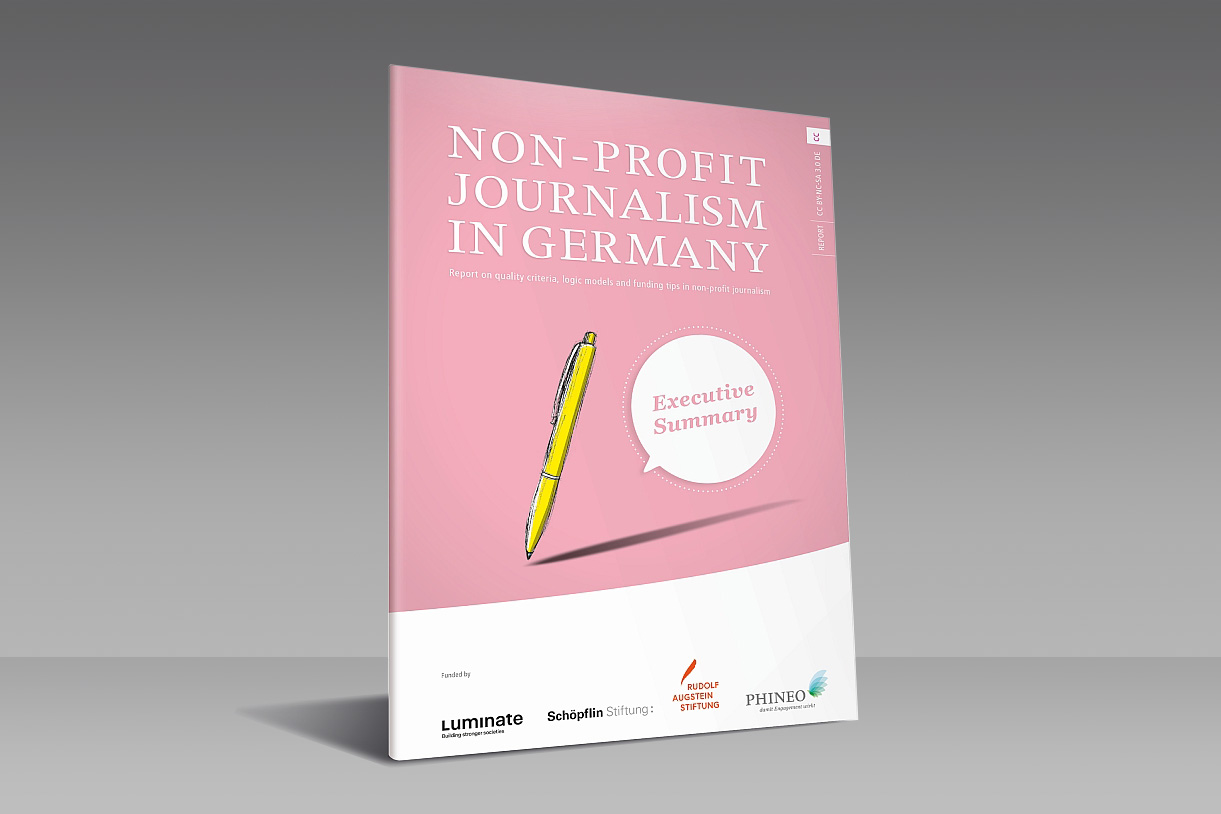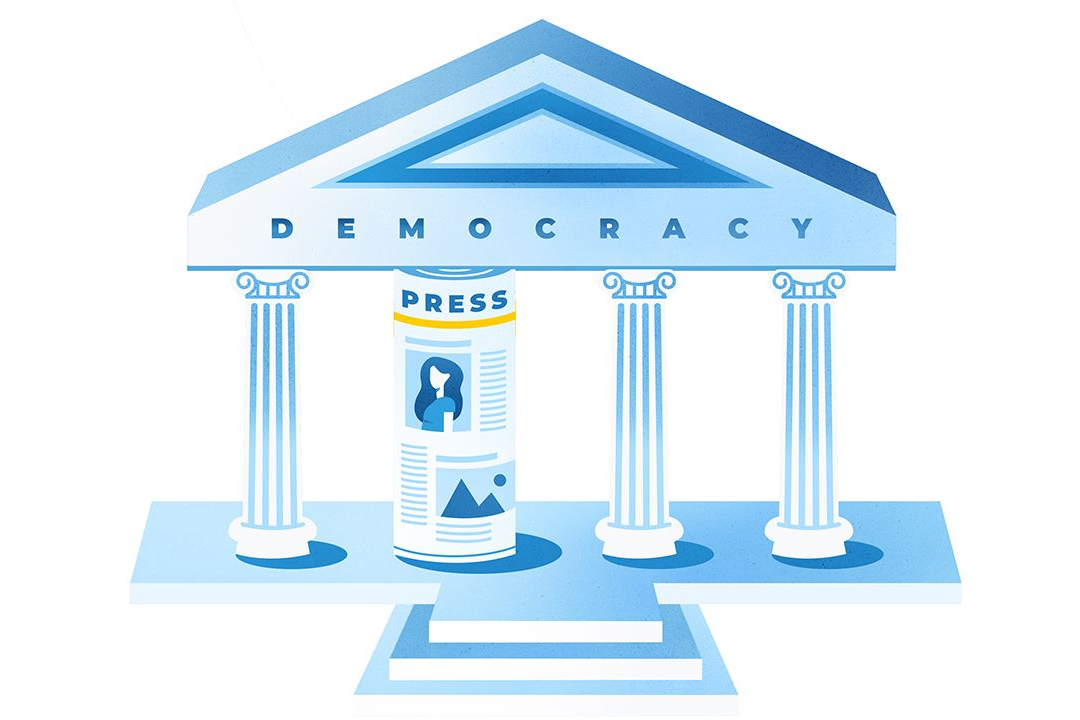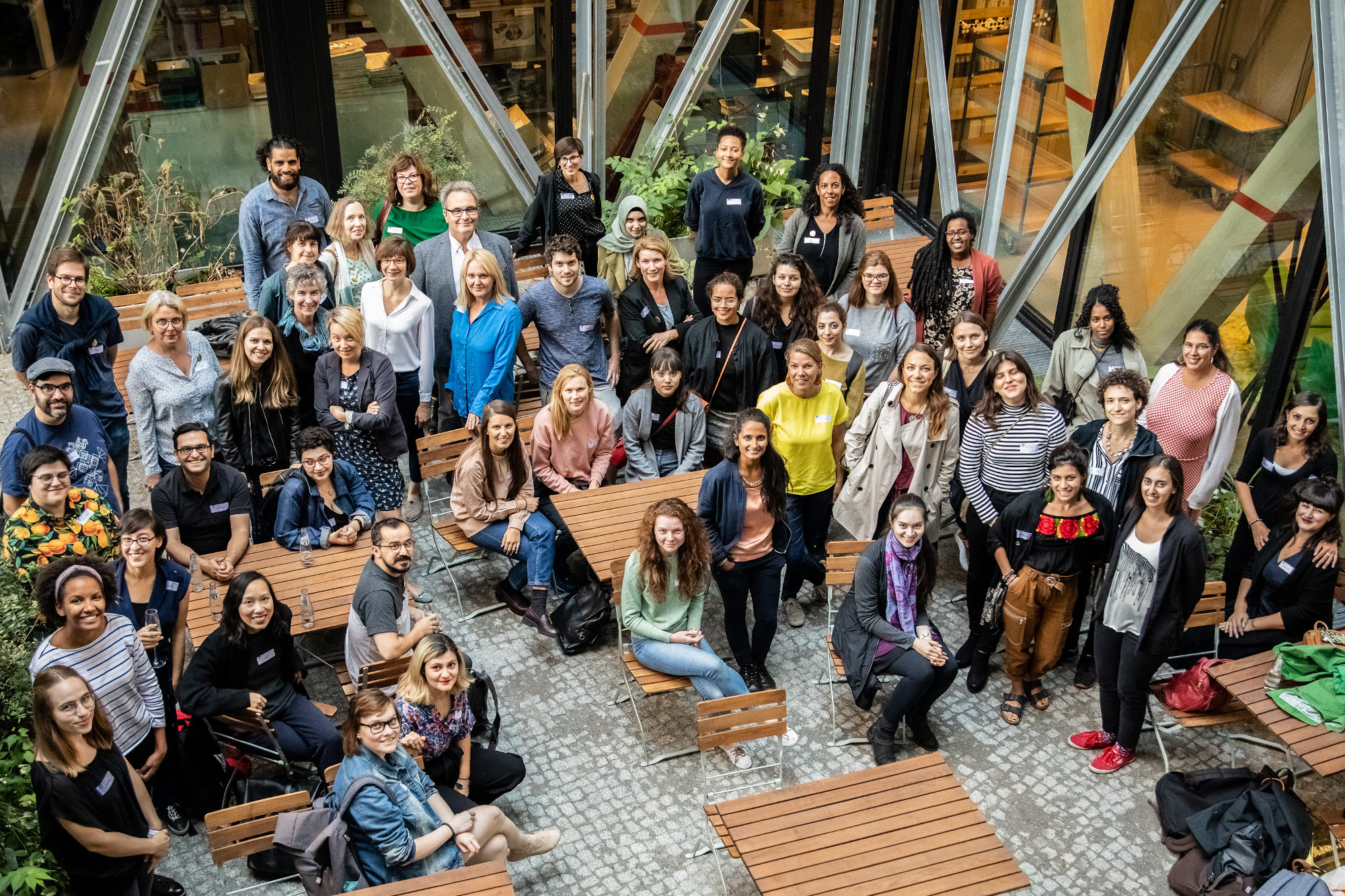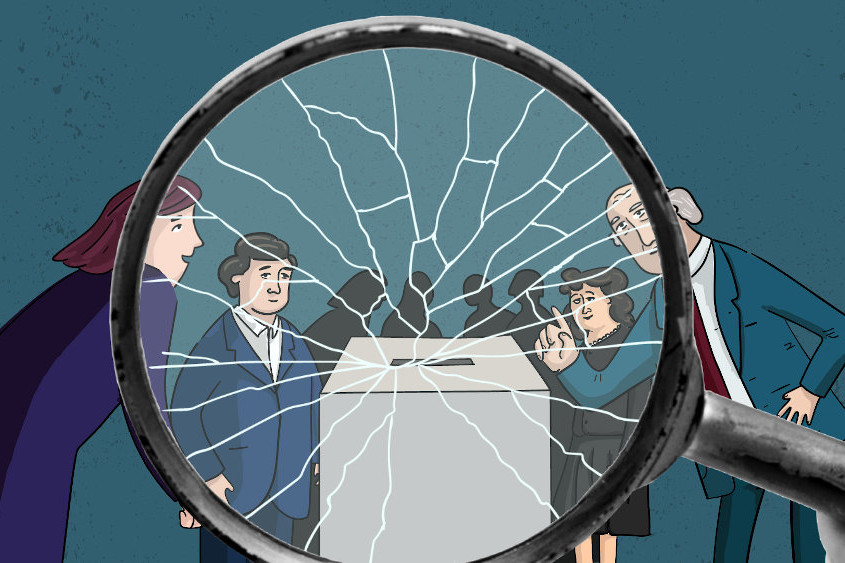Journalism
Creating momentum
Independent journalism enables the formation of opinion. In the digital age, publics emerge and vanish on the basis of networked technologies. Journalism is therefore permanently challenged to change in order to be able to interact with volatile publics. Constant experimentation and adaptation have become an imperative. At the same time, we are experiencing a funding crisis – especially for research-intensive, public interest journalism. Ad-based business models are becoming less and less viable.
As independent civil society actors, foundations are ideally placed to support quality journalism. They can assist those who are trying to meet the challenges with new ideas in order to strengthen the foundation of our liberal democracy.
Executive Summary: Non-Profit-Journalism in Germany
The executive summary “Non-Profit-Journalism in Germany” shows the potential of non-profit-journalism in the stated country; it displays how non-profit-journalism strengthens democracy and pictures what is needed to establish it in the media system. The summary is based on the German report “Wozu Non-Profit-Journalismus?“ that was co-initiated by the Rudolf Augstein Foundation and published 29 September 2020. Free download is now available.
What we promote
We are guided by the question of how we can best support the journalistic ecosystem in the digital age. We are therefore looking for projects and initiatives that can have a leverage effect.
In practice, this means that we are often involved in the early stages of:
- Investing in journalism infrastructures,
- Supporting projects that make smart use of networked technologies,
- Promoting initiatives and projects that strengthen journalism as a whole.
We are primarily involved in three areas:
1. Investigative journalism
We support and fund structures that help journalists to uncover injustices and abuses of power. Many of our projects strengthen collaboration – across national borders and disciplines. Because a globalised, networked world also requires cooperation in the field of journalism.
2. Innovation
We make experiments possible – from testing new business models and methods to opening up new approaches to the field and involvement with the community.
3. Developing young talents
We award scholarships to young talents. Up-and-coming journalists should thus be able to concentrate fully on their training. We also support initiatives that promote greater diversity in editorial offices.
Deadlines and information for applications
There are no deadlines for project funding in the journalistic field. You can submit your application at any time. Here you can review which documents we will need. Please note that different deadlines and selection criteria apply to applications for a scholarship.
Typically, you will be informed by email no later than twelve weeks after submission of your application whether your project will be funded.
Funding criteria
Applications received will be assessed according to the following criteria:
- Originality and relevance of the approach
- Potential to make a structural difference
- Sustainability of the method or (business) model
- Expertise of the parties
- Readiness for critical reflection, further development and communication of one’s own approach
What we don’t fund
- The production of journalistic content
- Research grants
- Projects outside Europe
Journalistic scholarships
We award scholarships to talented students and doctoral candidates who are pursuing a career in journalism. This primarily involves financial support to cover training costs and living expenses. We also offer networking and training opportunities.
Deadlines and information for scholarship applications
There is one application deadline per year for the award of scholarships. The next deadline is expected for the beginning of 2025. We will announce the date in due course.
You can submit your application for a scholarship at any time. This will automatically be assigned to the next submission deadline. Please note our information on applying for a journalistic scholarship.
The selection of scholarship recipients takes place in a two-stage process: in the first step, the application documents are checked. The most promising applicants will be invited for an in-person interview in Hamburg. The following criteria are decisive for an award of funding:
- Journalistic talent
- Intellectual and communicative abilities
- Motivation and willingness to work hard
- And additionally, for doctoral students: excellence in research and scholarship
The maximum scholarship amount is 1,000 Euro per month. Funding is limited to a period of 24 months.
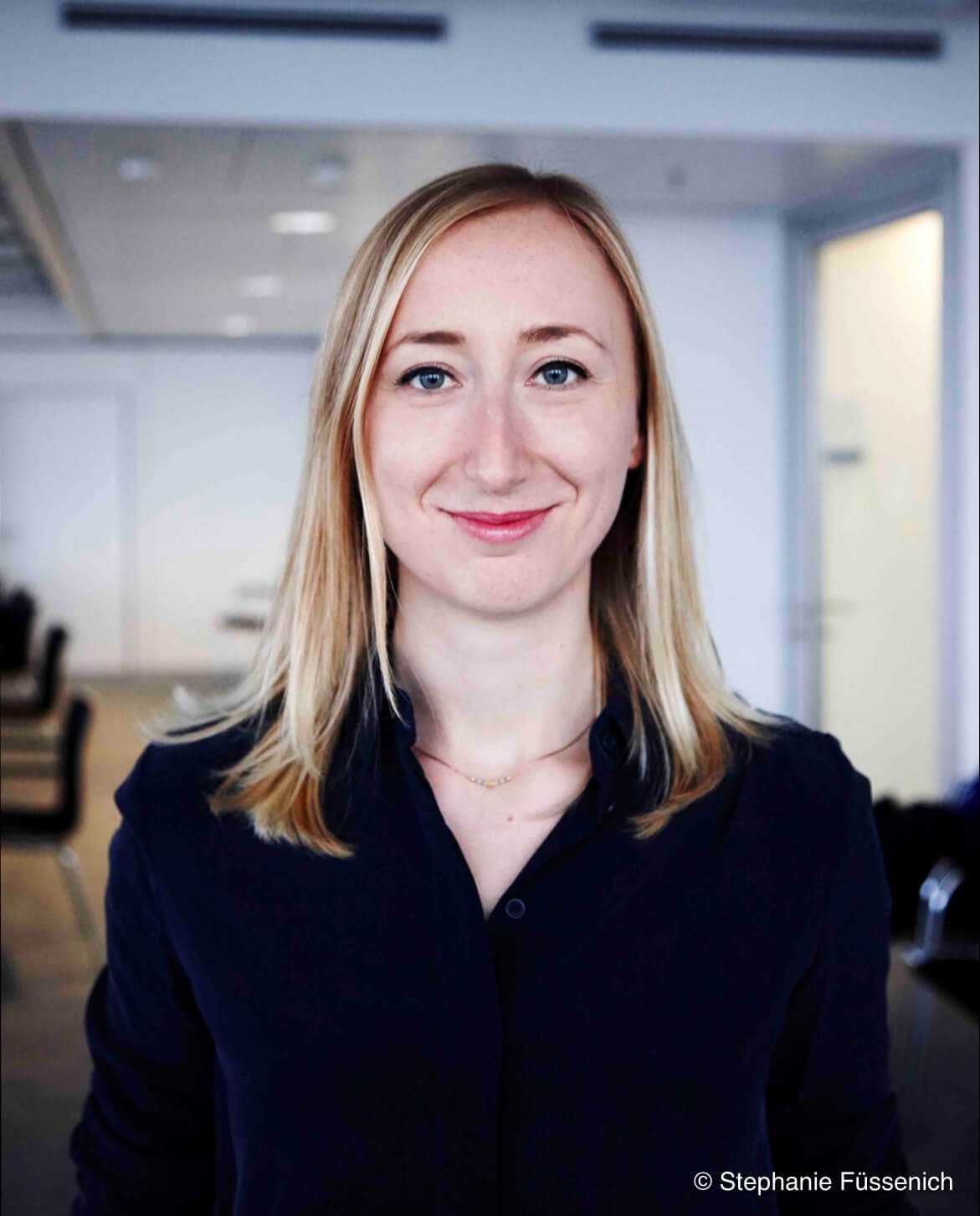
The scholarship has enabled me to specialize and, after studying in the US, take a rather unusual path: from local editor to investigative data journalist.
Vanessa Wormer
Selected funding projects

© Rafael Ben-Ari, stock.adobe.com JX Fund – European Fund for Journalism in Exile
The JX Fund is helping media professionals to continue their work quickly and flexibly after they have fled war and crisis regions. It aims to strengthen independent media in exile after attention has shifted elsewhere and to support them in building sustainable media outlets that remain accessible in their home countries.
Zum Projekt
© Skye Studios, Unsplash WPK Innovation Fund Science Journalism
The “WPK Innovation Fund Science Journalism” supports pioneers who break new ground in science and data journalism.
Zum Projekt
© Civitates Fund for independent public-interest journalism in Europe
The fund, initiated by Civitates, strengthens the field of independent, public-interest journalism in Europe by providing structural, core support for the exciting but stretched organisations that exist in this space.
Zum Projekt
© Thomas Lobenwein New German Media Makers
More diversity in journalism: the mentoring programme by New German Media Makers supports journalists with immigrant backgrounds or experiences as refugees in starting their careers.
Zum Projekt
© CORRECTIV CORRECTIV.Lokal
With CORRECTIV.Lokal, the non-profit investigative newsroom CORRECTIV has established a Germany-wide network for collaborative local journalism.
Zum Projekt
© Alexia Barakou Investigate Europe
Exposing structural abuses of power at the European level, “Investigate Europe” is enriching media coverage with its multiplicity of perspectives and excellent investigations.
Zum Projekt
